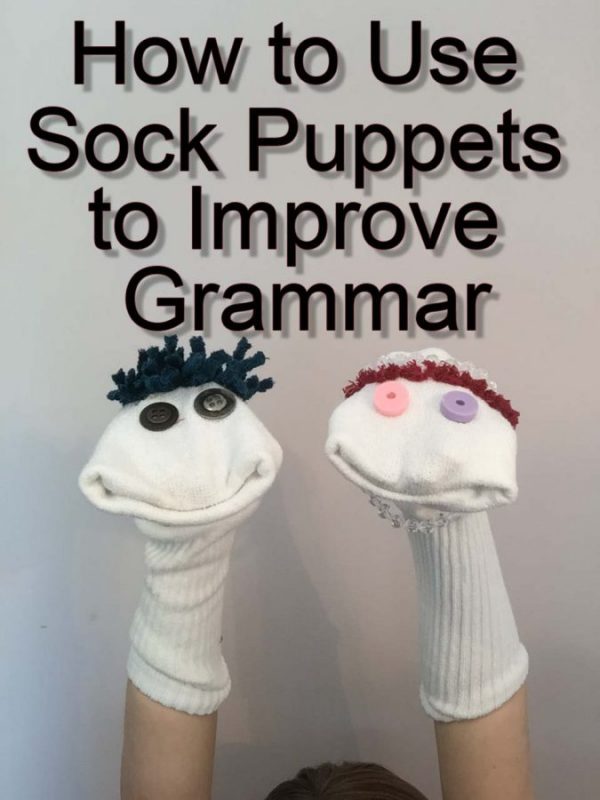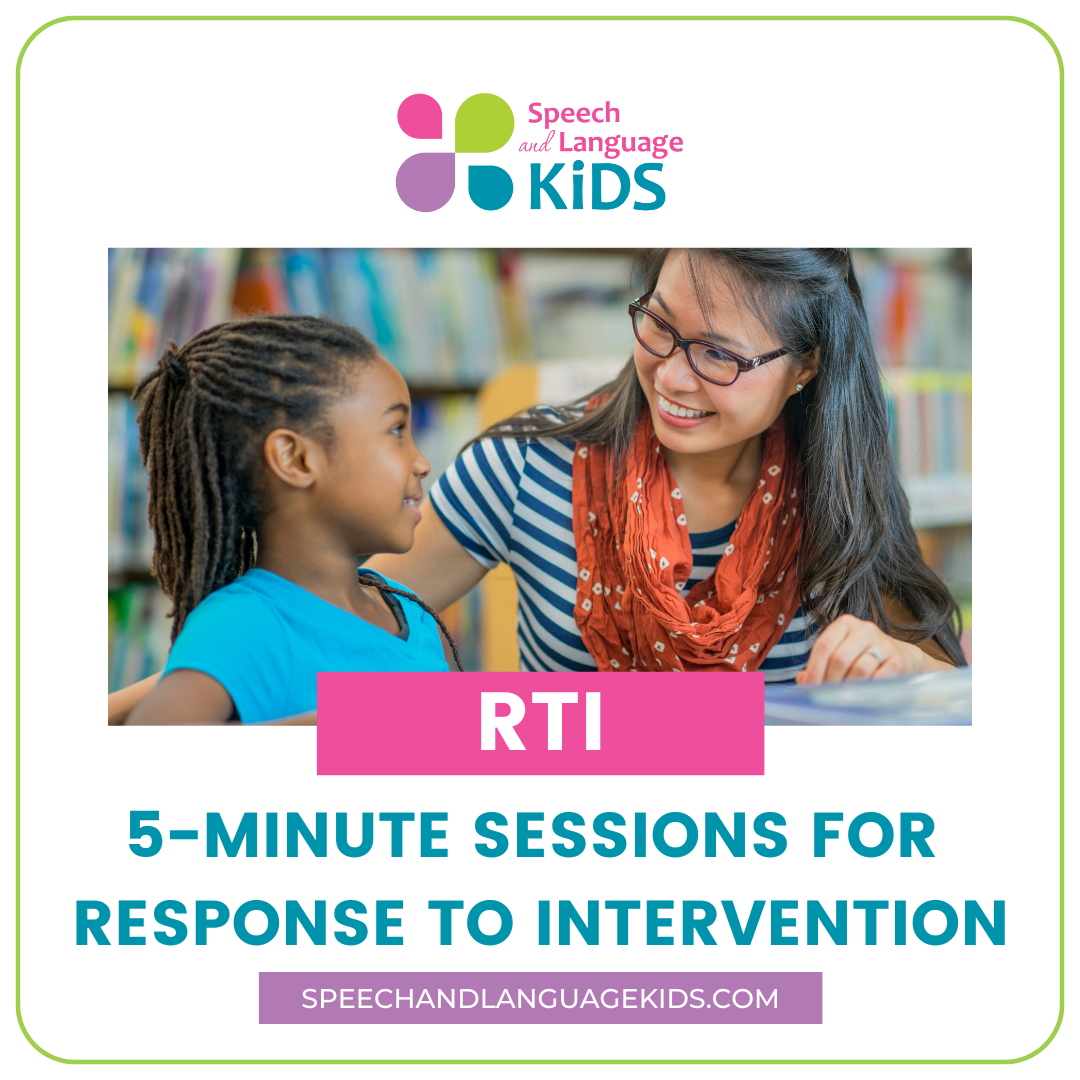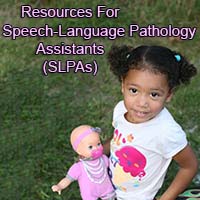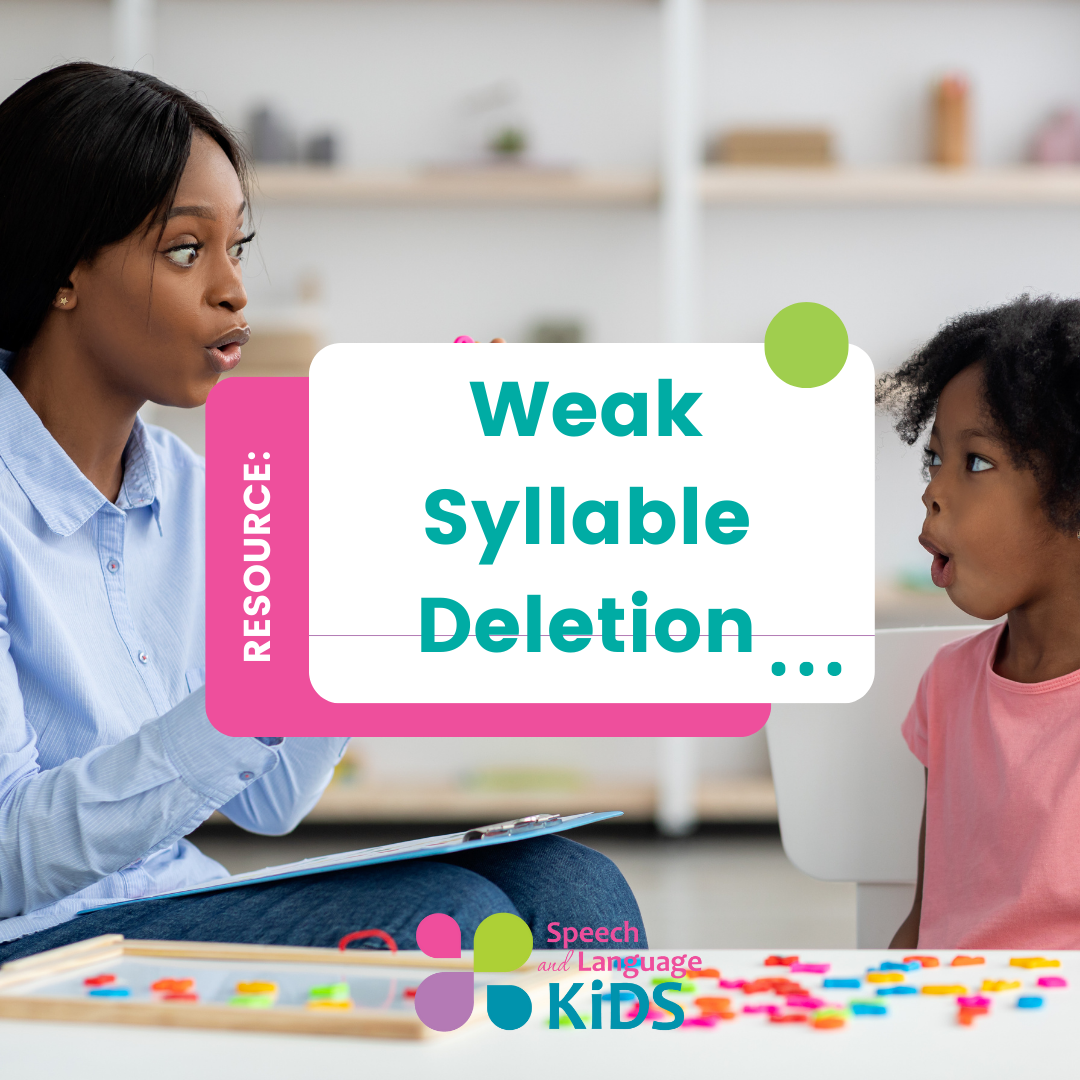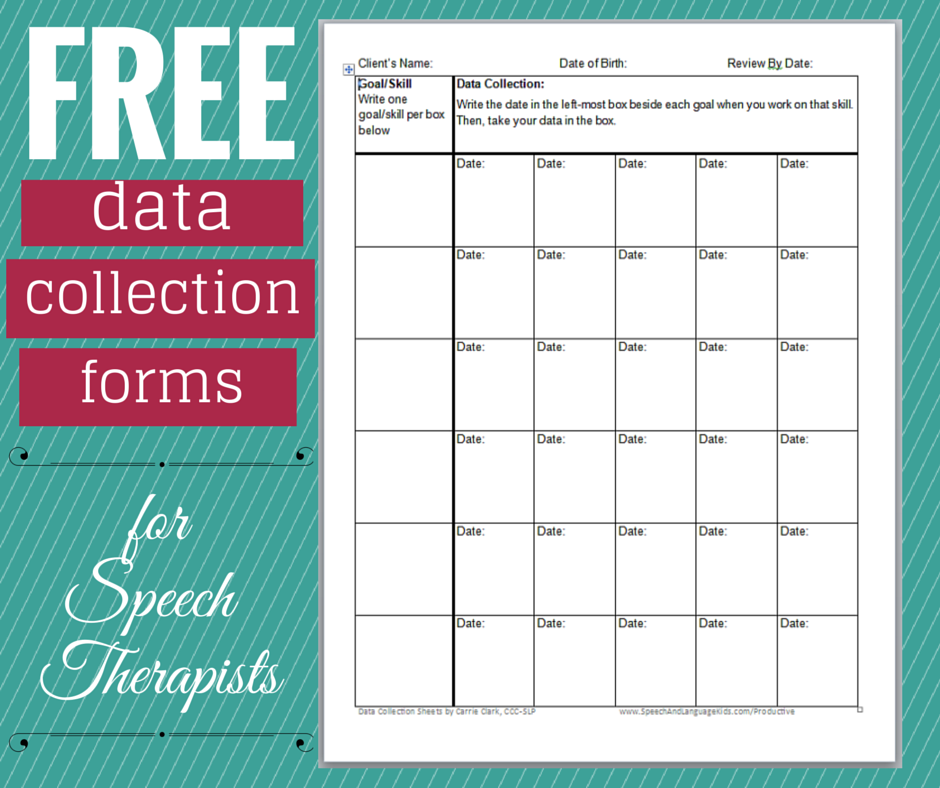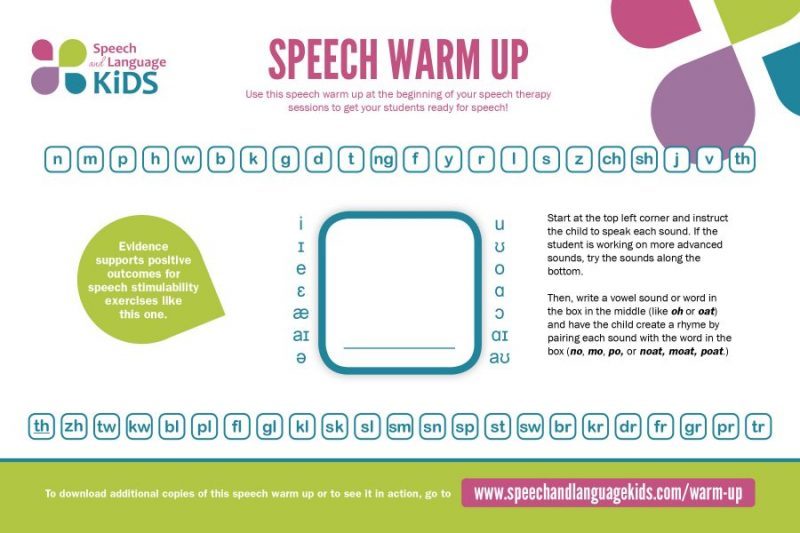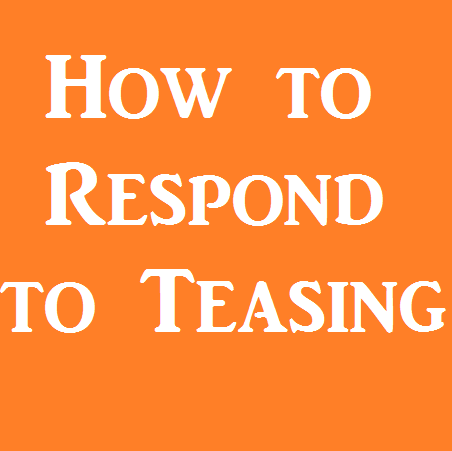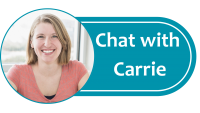Topic:
Resource Type:
Results:
How to Use Sock Puppets to Improve Grammar (Pronouns and Verb Tenses)
This fun therapy activity will let you work on grammar skills like pronouns and verb tenses while you’re playing with sock puppets. It’s cheap, it’s easy, and it’s SUPER fun! Check it out: Materials: Two Sock Puppets: Use tube socks and hot glue eyes and hair onto them. Make
Establishing Joint Attention: Therapy for Children Who Aren’t Tuned In
Establishing and Improving Joint Attention in Children Join the Hub to Access (Free Trial) Johnny doesn’t pay attention to other people. He doesn’t notice the other children that play around him and when an adult tries to get his attention,
RTI Speech Therapy: How to Use 5-Minute Sessions for MTSS Tier 2
RTI Speech Therapy: How to Use 5-Minute Sessions for MTSS Tier 2 Response to Intervention (RTI) is an approach to supporting children who are struggling to learn something from the general education curriculum. It is when we provide additional supports to those children outside of the special education
Resources for Speech-Language Pathology Assistants (SLPAs)
What is an SLPA? **This first part is about the roles of an SLPA. For resources, materials, and support: scroll down! Here’s what the American Speech-Language Hearing Association (ASHA) defines as a speech-language pathology assistant (SLPA): “Speech-language pathology assistants are support personnel who, following academic coursework, fieldwork, and
Ultimate Guide to Teaching Written Narratives by Grade Level
Breaking Down the Common Core Standards for Working on Written Narratives The common core standards are the set of curriculum guidelines that the department of education has set forth as a method of making sure that all students are taught the skills needed to be successful in college or
Echolalia: What is Echolalia and How Can We Help?
What is Echolalia? Echolalia Meaning: Echolalia is the term used to describe when a child repeats or imitates what someone else has said. Echolalia Examples: Immediate Echolalia: Sometimes a child repeats your question instead of answering it. If you say, “Do you want a
Selective Mutism Speech Therapy and Treatment for Children
Selective Mutism Speech Therapy and Treatment for Children Selective mutism is a complex anxiety disorder that is characterized by a child’s consistent failure to speak in specific social situations in which there is an expectation for speaking (e.g., at school), despite speaking in other situations (e.g., at home).
Weak Syllable Deletion: Speech Therapy for Syllable Reduction
Weak Syllable Deletion: How to Treat Syllable Reduction in Children Unstressed syllable deletion, also known as weak syllable deletion or syllable reduction, is the phonological process that occurs when a child deletes one or more syllables from a multisyllabic word. For example, "umbrella" might become "brella". This is
Goal Writing Resource Page
Click Here to Get a PDF Version of the Formula Carrie's Goal-Writing Tutorial Welcome to my Goal-Writing Tutorial! I am Carrie Clark and my website is all about providing resources and activities for speech therapists and parents of children with speech and language delays. If you've found this
Making Inferences For Speech Therapy
How to Help Children Learn to Make Inferences An inference is when you use clues present (in text or in real life) along with your background knowledge to make a guess about something that's not explicitly known. For example, if you see an "out of order" sign, you
8 Data Collection Ideas for Speech Therapists
Looking for some great ways to collect data as a speech therapist? Watch the video below for my top data collection methods and then click the button below to download my data collection forms for free! For More Productivity Hacks for Speech Therapists, Click Here!
Using Video Modeling For Kids With Autism
What is Video Modeling? Video modeling is a fun instructional technique where the child watches a video of himself or herself doing a desired behavior or skill. For example, let’s say Johnny always throws a fit on the way from the bus to his classroom at the beginning of
Tips for Productive Group Speech Therapy Sessions
Having trouble making your group therapy session run smoothly? Check out this video with four different approaches to group therapy plus tips for managing student behavior, collecting data, and starting your sessions off smoothly. To Download the Slides from this Video for Free, Click the Button
Speech Therapy Warm-Up
Still doing Non-Speech Oral Motor Exercises for Warm-Ups? Try this instead!! Click Here to Download a PDF of the Warm-Up Need some sources for this info? Dr. Loff shared these with me: http://lshss.pubs.asha.org/article.aspx?articleid=1778841 http://www.researchgate.net/publication/248844490_Oral_Motor_Exercises_and_Treatment_Outcomes http://europepmc.org/abstract/med/19058121 http://www.citeulike.org/group/18272/article/12798999 http://sig16perspectives.pubs.asha.org/article.aspx?articleid=1761803 http://lshss.pubs.asha.org/article.aspx?articleid=1779061 Speech sounds that are stimulable are more likely to improve without
Idiom, Figurative Language Speech Therapy Activities
How to Teach Idioms and Figurative Language to Kids and Teens Have you been bending over backwards trying to teach your students idioms? Are they left high and dry when idioms are used in their classrooms? Well I’m going to take the bull by the horns and knock your
Declutter and Organize Your Speech Therapy Space
Productivity Hacks for Speech Therapists, Video One: De-cluttering and Organizing Your Speech Therapy Space http://www.speechandlanguagekids.com/declutter-and-organize-your-speech-therapy-space Click Here to Download the flow chart, floor plan, data sheet, and successes worksheet for free! Welcome to video one of my new Productivity Hacks for Speech Therapists video series. This
How to Help your Child with Teasing
“You’re kid sounds funny” “He’s so weird” “What’s wrong with that kid?” “Why is he doing that?” “Is she dumb or something?” Sticks and stones may break bones but words can be just as painful if you are the parent of a child with special needs. Those insults may
Writing IEP Goals | SMART Goals and Examples
Writing IEP Goals...The SMART Way! Writing IEP goals can be frustrating and intimidating...but it doesn't have to be! Imagine that you show up to an IEP (Individualized Education Plan) meeting, whether you are a parent or a professional, and you see a goal like this: "Bonnie will
Frontal Lisp/Interdental Lisp | Speech Therapy Ideas & Word Lists
What Is a Frontal Lisp? Let’s start at the beginning. A frontal lisp, also known as an interdental lisp, occurs when a child says the /s/ and /z/ sounds with the tongue pushed too far forward. This causes /s/ and /z/ to sound more like “th”. Frontal
Final Consonant Deletion | Activities, Words, and Goals
What is Final Consonant Deletion? Final consonant deletion is a phonological process (pattern of speech errors) where a child drops off the ending consonants of all words. Final Consonant Deletion Examples: “dog” becomes “dah” “cat” becomes “ca” And “Please Mom, can I eat some eggs and toast?”
Podcast: Play in new window | Download | Embed
Subscribe: RSS

